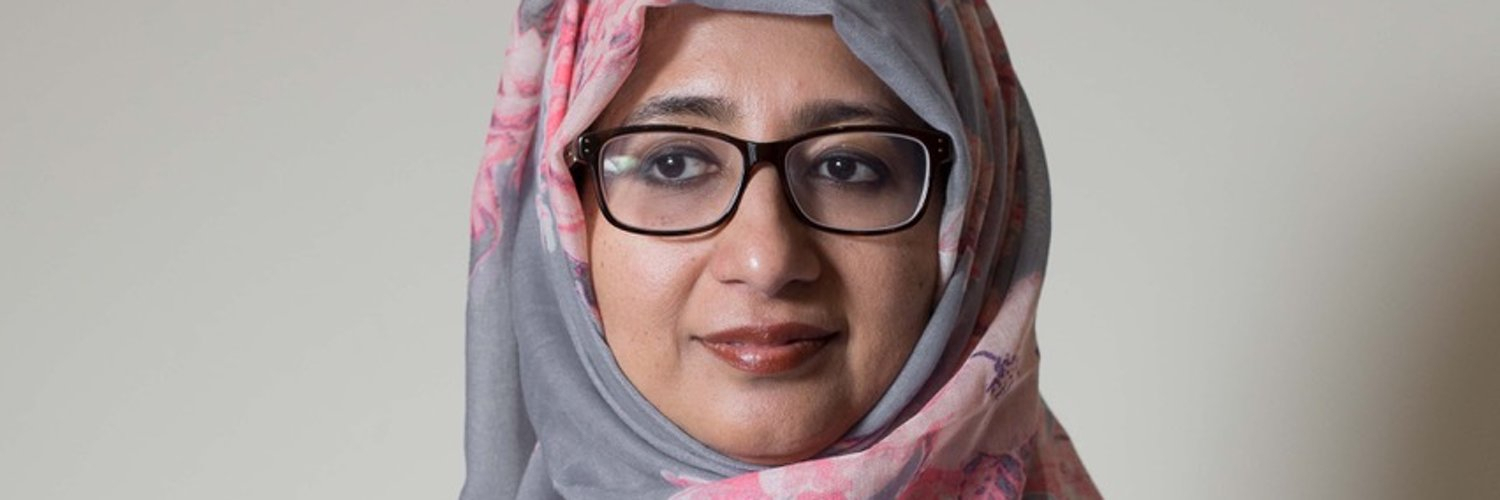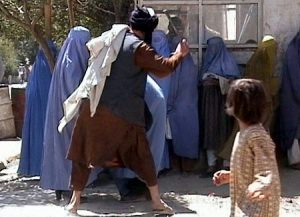By Khadija Khan
On the 102nd anniversary of Afghanistan’s independence from the British Empire, the Taliban swept into the capital city of Kabul and declared the formation of an “Islamic emirate”.
Suhail Shaheen, a Taliban spokesman, said the group would form an “open” and “inclusive” government under Sharia law – an oxymoron if ever there was one.
The collapse of the government, the withdrawal of western forces and attacks on Kabul airport – claimed by the terrorist group ISIS-K – have made Afghanistan a hellhole for the citizens of the country, who have been left at the mercy of the Taliban’s barbaric regime.
No doubt this will be a victory for the Taliban apologists, who have longed for the establishment of an Islamic state to enforce Sharia law – while overlooking human rights violations.
One such cheerleader for the brutal regime is the hate preacher Anjem Choudary, who has urged the extremists to purge all western influence from the country and ban “useless pursuits such as music, drama, and philosophy”.
He also advised Muslims to travel to Afghanistan, stating: “As a Muslim, we believe in Islam and the sharia, so it is a natural thing to live there”.
Choudary, let us not forget, has been linked to terror attacks in the UK, which were carried out by his followers. He was convicted of promulgating extremist views and supporting the Islamic state in Iraq and Syria.
While his views are not a surprise to any of us, the real tragedy is that Choudary doesn’t seem alone in his jubilation. Even the so-called “moderate” representatives of British Muslim communities seem euphoric about the Taliban’s victory.
UK sharia council scholar Khola Hasan told the BBC: “Every single person that I know, as a Muslim” was “celebrating” the return of the Taliban, and that the Islamist group’s recent posturing on women’s rights was a “good start”.
When asked about reports of women and children being beaten and whipped, Hasan replied: “We have to be very careful not to take small, minor incidents and make them into something huge.”
It is astonishing that someone who has a huge amount of influence over British Muslim communities can brush aside reports of the Taliban gouging out women’s eyes, taking girls as sex slaves and forcing women to be covered head to toe in burqas. Assuming she is deluded or unaware of the Afghan people’s ordeal is nothing but self-deception.
Then again, Hasan is part of a system of UK Sharia councils that promulgate religious laws, which are inherently discriminatory towards women. One could argue that she is part of the problem.

Another apologist is Musharraf Hussain, a deputy lieutenant of Nottinghamshire Council, who said that the Taliban should be given the “benefit of doubt” and regarded the extremist group’s take over as an “amazing opportunity”.
The above views that endorse or downplay the Taliban’s oppressive regime are antithetical to the liberal democratic values modern-day Britain stands for.
Though it is true that the vast majority of British Muslims – like their fellow citizens – are worried about the threat of Islamism, the reality on the ground is that there is usually very little denunciation of Hasan or Hussain from such communities.
People who openly condemned Hasan for rationalising the Taliban’s brutal takeover can be counted on one hand, which does nothing to dispel the stereotype that Muslims support extremism.
Having said that, however, the unfortunate truth is that people like Khola Hasan and Anjem Choudary do speak for a certain – albeit small – section of British Muslims.
This narrative that the Taliban or any other terrorist groups have “nothing to do with Islam” or “they don’t represent Muslims” have become a tired cliché.
Merely saying that they are not the representative of Muslims doesn’t change the fact that they are given the opportunity to speak on behalf of British Muslims by mainstream media outlets such as the BBC, and often without much of a rebuttal to their arguments.
The British media has a history of giving airtime to people with radical views. In the past, the BBC was severely criticised for inviting Anjem Choudary on a talk show to discuss the murder of British soldier Lee Rigby in 2013.
On another occasion, the BBC was branded as “callous and irresponsible” for offering a platform to Choudary’s associate Anthony Small, also known as Abdul Haqq, in a reality show about Muslims. He was charged – and subsequently acquitted – of “encouraging acts of terrorism”.
British authorities are partly to blame for this unpleasant situation. Many of us have been profusely talking about the fractions of apologists for extremism within Muslim communities for so long. But all concerns have fallen on deaf ears.
Whether unwittingly or deliberately, the authorities have averted their eyes and always prefer to appease religious fanatics in an attempt to “calm” the situation rather than dealing with them head-on.
The Taliban’s victory is already emboldening militant organisations to reorganise under the banner of a shared, vile ideology – Islamism. The country remains a source of inspiration for extremists who are hoping for the establishment of a worldwide caliphate.
After the defeat of ISIS, I warned that its fighters would still be dedicated to an extremist interpretation of Islam and willing to die for their caliphate. I said it would be naive to think that a similar death cult would not revive elsewhere. With the resurgent of the Taliban, Afghanistan could sadly become an international jihadist training ground for religious radicalisation.
Therefore, prominent commentators downplaying Taliban atrocities shouldn’t be seen as naive analysts. They should be confronted and their divisive narrative should be repudiated publicly. Mainstream media outlets should know that by not presenting a counter narrative against radical ideas they become complacent.
We have already lost a generation of young people to the madness of establishing an Islamic State in Iraq and Syria. We can’t afford to do the same again. The war in Afghanistan might be over, but the poisonous Islamist ideology is still a threat to our peaceful way of life.

Khadija Khan is a journalist and commentator based in the UK. You can follow her on Twitter.

